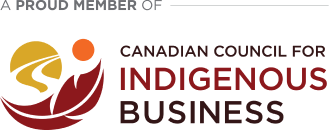Your cart is currently empty!

ISO 19870:2023
ISO 19870:2023 Hydrogen technologies – Methodology for determining the greenhouse gas emissions associated with the production, conditioning and transport of hydrogen to consumption gate
CDN $351.00
Description
ISO 14044 requires the goal and scope of an LCA to be clearly defined and be consistent with the intended application. Due to the iterative nature of LCA, it is possible that the LCA scope needs to be refined during the study.
This document specifies methodologies that can be applied to determine the carbon footprint of a product (CFP) or partial CFP of a hydrogen product in line with ISO 14067. The goals and scopes of the methodologies correspond to either approach a) or b), given below, that ISO 14040:2006, A.2 gives as two possible approaches to LCA.
a)    An approach that assigns elementary flows and potential environmental impacts to a specific product system, typically as an account of the history of the product.
b)    An approach that studies the environmental consequences of possible (future) changes between alternative product systems.
Approaches a) and b) have become known as attributional and consequential, respectively, with complementary information accessible in the ILCD handbook.[1]
There are numerous pathways to produce hydrogen from various primary energy sources. This document describes the requirements and evaluation methods applied to several hydrogen production pathways of interest: electrolysis, steam methane reforming (with carbon capture and storage), co-production and coal gasification (with carbon capture and storage), auto-thermal reforming (with carbon capture and storage), hydrogen as a co-product in industrial applications and hydrogen from biomass waste as feedstock.
This document also considers the GHG emissions due to the conditioning or conversion of hydrogen into different physical forms and chemical carriers:
–¬†¬†¬† hydrogen liquefaction;
–¬†¬†¬† production, transport and cracking of ammonia as a hydrogen carrier;
–¬†¬†¬† hydrogenation, transport and dehydrogenation of liquid organic hydrogen carriers (LOHCs).
This document considers the GHG emissions due to hydrogen and/or hydrogen carriers’ transport up to the consumption gate.
It is possible that future revisions of this document will consider additional hydrogen production, conditioning, conversion and transport methods.
This document applies to and includes every delivery along the supply chain up to the final delivery to the consumption gate (see Figure 2 in the Introduction).
This document also provides additional information related to evaluation principles, system boundaries and expected reported metrics in the form of Annexes A to K, that are accessible via the online ISO portal (https://standards.iso.org/iso/ts/19870/ed-1/en).
Edition
1
Published Date
2023-11-30
Status
PUBLISHED
Pages
52
Format 
Secure PDF
Secure – PDF details
- Save your file locally or view it via a web viewer
- Viewing permissions are restricted exclusively to the purchaser
- Device limits - 3
- Printing – Enabled only to print (1) copy
See more about our Environmental Commitment
Abstract
ISO 14044 requires the goal and scope of an LCA to be clearly defined and be consistent with the intended application. Due to the iterative nature of LCA, it is possible that the LCA scope needs to be refined during the study.
This document specifies methodologies that can be applied to determine the carbon footprint of a product (CFP) or partial CFP of a hydrogen product in line with ISO 14067. The goals and scopes of the methodologies correspond to either approach a) or b), given below, that ISO 14040:2006, A.2 gives as two possible approaches to LCA.
a)    An approach that assigns elementary flows and potential environmental impacts to a specific product system, typically as an account of the history of the product.
b)    An approach that studies the environmental consequences of possible (future) changes between alternative product systems.
Approaches a) and b) have become known as attributional and consequential, respectively, with complementary information accessible in the ILCD handbook.[1]
There are numerous pathways to produce hydrogen from various primary energy sources. This document describes the requirements and evaluation methods applied to several hydrogen production pathways of interest: electrolysis, steam methane reforming (with carbon capture and storage), co-production and coal gasification (with carbon capture and storage), auto-thermal reforming (with carbon capture and storage), hydrogen as a co-product in industrial applications and hydrogen from biomass waste as feedstock.
This document also considers the GHG emissions due to the conditioning or conversion of hydrogen into different physical forms and chemical carriers:
-    hydrogen liquefaction;
-    production, transport and cracking of ammonia as a hydrogen carrier;
-    hydrogenation, transport and dehydrogenation of liquid organic hydrogen carriers (LOHCs).
This document considers the GHG emissions due to hydrogen and/or hydrogen carriers’ transport up to the consumption gate.
It is possible that future revisions of this document will consider additional hydrogen production, conditioning, conversion and transport methods.
This document applies to and includes every delivery along the supply chain up to the final delivery to the consumption gate (see Figure 2 in the Introduction).
This document also provides additional information related to evaluation principles, system boundaries and expected reported metrics in the form of Annexes A to K, that are accessible via the online ISO portal (https://standards.iso.org/iso/ts/19870/ed-1/en).
Previous Editions
Can’t find what you are looking for?
Please contact us at:
Related Documents
-

ISO 3833:1977 Road vehicles – Types – Terms and definitions
0 out of 5CDN $115.00 Add to cart -

ISO 80004:2020 Nanotechnologies – Vocabulary – Part 8: Nanomanufacturing processes
0 out of 5CDN $76.00 Add to cart -

ISO 2382:2015 Information technology – Vocabulary
0 out of 5CDN $0.00 Add to cart -

ISO 80000:2025 Quantities and units – Part 13: Information science and technology
0 out of 5CDN $203.00 Add to cart






